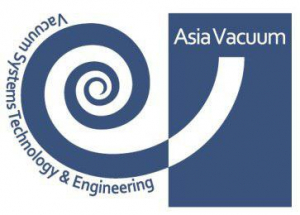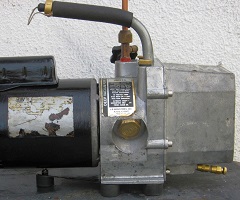6 Questions You Should Ask When Buying a Vacuum Pump
Top 6 Questions You Should Ask When Buying a lab vacuum pump
1. What will you be using the vacuum for? Filtration needs modest vacuum. Evaporation requires deeper vacuum. Molecular distillation requires even more. Match the pump to the use.
2. Can you use a dry (oil-free) vacuum pump? Oil-free vacuum pumps can support most lab applications. For the service advantages, choose a dry pump where possible.
3. What is the pumping capacity at the intended vacuum level? Actual pumping speed declines from the nominal speed as depth of vacuum increases. The rate of decline differs among pumps.
4. Do you work with corrosive media? Standard duty pumps have lower purchase costs, but corrosion-resistant pumps will have lower lifetime costs if working with corrosives.
5. Should you invest in vacuum control? Electronics can improve reproducibility, protect samples and shorten process times when specific vacuum conditions need to be maintained.
6. What is the lifetime cost of operation? Include purchase cost, service intervals, servicing cost, pump protection (e.g., filters, cold traps), and staff time for operation.
Types of vacuum pumps our readers are using in their labs:
| Rotary vane pump | 16% |
| Dry diaphragm vacuum pump | 37% |
| Water or air aspirator | 36% |
| Deep vacuum pump | 28% |
| Filtration pump | 26% |
| Turbo Pump | 2% |
| Other | 3% |
| Vacuum or pressure filtration | 48% |
| Dry diaphragm vacuum pump | 29% |
| Degassing | 29% |
| Mass spectrometry | 28% |
| Rotary evaporator | 26% |
| Freeze drying | 18% |
| Gel dryer | 10% |
| Liquid aspiration | 3% |
| Other | 5% |
The top 10 factors/features for our readers when they are buying a vacuum pump:
| Most Important/Important | Not Important | Don’t Know | |
| Durability/performance | 96% | 3% | 1% |
| Price | 92% | 4% | 4% |
| Ease of Use | 91% | 7% | 2% |
| Leak-tightness | 89% | 8% | 3% |
| Pump speed | 85% | 9% | 6% |
| Warranties | 85% | 12% | 3% |
| Safety and health features | 82% | 12% | 6% |
| Low maintenance costs | 81% | 14% | 5% |
| Availability of supplies and accessories |
80% | 16% | 4% |
| Noise level—quiet | 80% | 17% | 3% |



